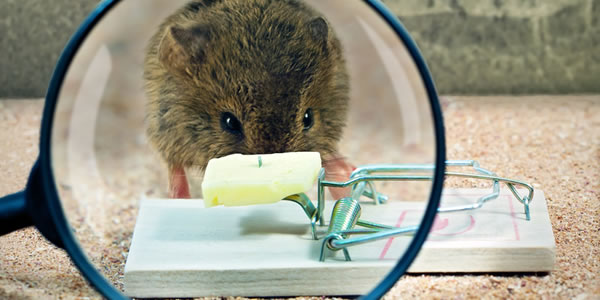Ridding Your Home of Rodents
An infestation of rodents is the stuff of a homeowner’s nightmare. If you hear scampering sounds in ceilings, discover droppings or find gnawed food or food packaging in the kitchen, you might have rodents. Other signs of a rodent infestation include:
- rodent droppings around food sources, in drawers or cupboards, and/or under the sink;
- nesting material such as shredded paper, fabric, or dried plant matter;
- stale smells coming from hidden areas.
Rodents can chew through drywall and wood and cause significant damage. They can destroy insulation and even cause house fires by chewing through electrical wiring.
But property damage is only part of the problem. According to the National Pest Management Association, rodents are carriers of diseases ranging from the hantavirus, a potentially fatal disease, to salmonellosis, a type of food poisoning, rat bite fever and the bubonic plague. The accumulation of rodent feces can spread bacteria, contaminate food sources and trigger allergic reactions in humans. Once the fecal matter becomes dry, it can be hazardous to those who breathe it in.
To prevent rodents from taking up residence in your home, pest control experts recommend taking the following precautions:
- Seal holes or gaps in foundation of house/shed/porch/garage
- Seal gaps around piping and wiring at wall and around windows and doors
- Remove debris and foliage and vines around foundation
- Screen and block the perimeters of decks
- Avoid locating trees close to house
- Cap or screen chimneys
- Check that roof and soffit vents are intact
- Check that roof fascia has no gaps or holes
- Check exhaust vents
- Storing grass seed and other food sources in sheds will attract rodents
- Ensure garbage containers are securely stored
If left untreated, a sighting of a single mouse or rat can quickly multiply into an infestation. If you suspect you have unwanted house guests, contacting a pest control specialist should be your first line of defence.
Courtesy: Homeservice Club

